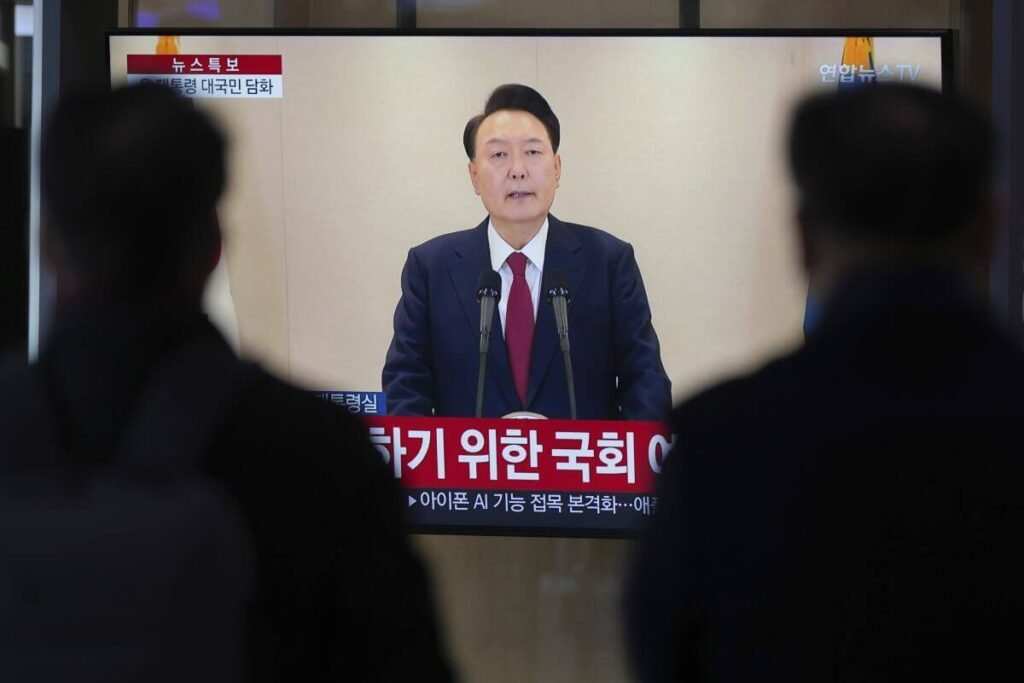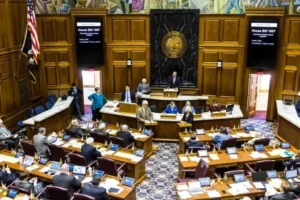Yoon Suk Yeol, the President of South Korea, justified his decision to impose martial law, saying it was a critical decision he made to save democracy. In a Thursday broadcast speech, Yoon claimed the action was intended to combat the opposition’s “parliamentary dictatorship.” He made these comments as lawmakers are ready for this Saturday’s second impeachment vote.
Yoon faced instant criticism and widespread protests after imposing martial law, which parliament overturned in six hours. Protesters took to the streets of Seoul, demanding his resignation and accusing him of rebellion. Police raided Yoon’s office on wednesday, further escalating the situation.
Despite the backlash, Yoon has vowed to stay in the office, stating, “fight until the end.” The opposition, led by the Democratic Party, is pushing for another impeachment vote after last week’s attempt failed.
The President’s People Power Party (PPP) boycotted that vote, but cracks within the party have since emerged. On Thursday, the PPP elected a new floor leader, Kwon Seong-dong, who signaled the possibility of an early presidential election.
Former defense minister Kim Yong-hyun, a key figure in the martial law controversy, was arrested earlier this week on rebellion charges. Prosecutors allege Kim orchestrated troop deployments to prevent lawmakers from voting against the decree.
As the country grapples with political turmoil, protests have intensified, with protesters using K-pop light as a symbol of resistance. A constitutional court will decide Yoon’s future if the impeachment vote passes. Two-thirds of the court must agree to remove him from the office permanently.
The marital law controversy has left Yoon Suk Yeol on shaky ground, with opposition forces determined to remove him. As President Yoon fights to remain in power, South Korea’s political future hangs in the balance.










